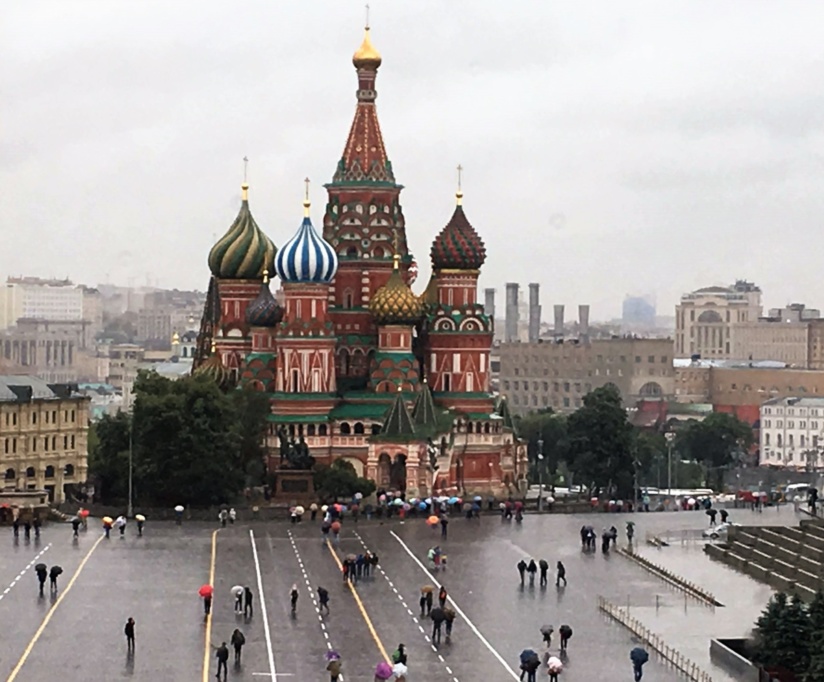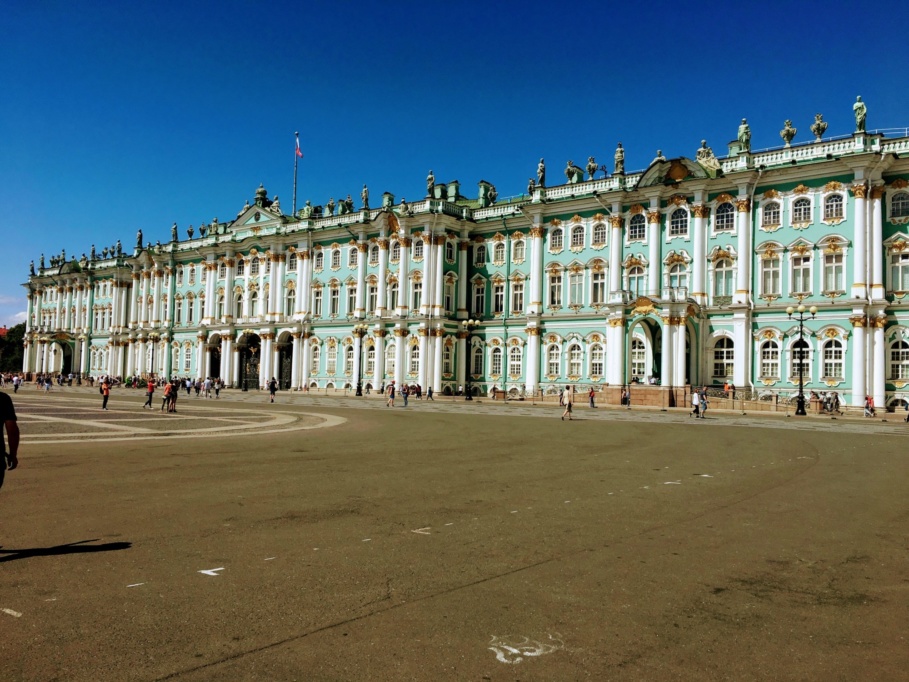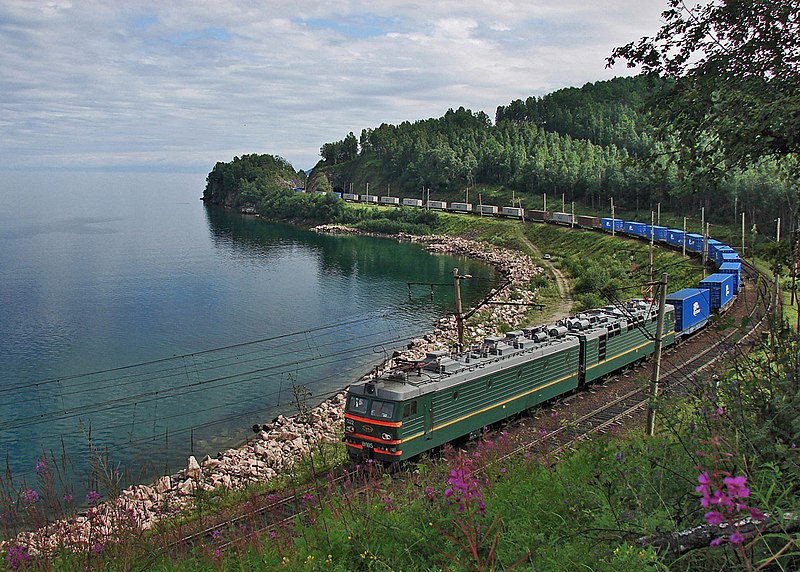RUSSIA
TRAVEL GUIDE
Explore the wonders of Russia with our comprehensive travel guide, designed to immerse you in the rich history, vibrant culture, and stunning landscapes of this vast country. From the iconic landmarks of Moscow and St. Petersburg to the serene beauty of Siberia and the Far East, discover the best attractions, culinary delights, and cultural experiences. Our guide provides essential tips on planning your trip, navigating transportation, and ensuring a safe and memorable adventure in Russia.
Need To Know: How To Travel To Russia
Travel to Russia for an unforgettable journey through history, culture, and breathtaking landscapes. Explore iconic cities like Moscow and St. Petersburg, marvel at architectural wonders, and immerse yourself in unique traditions. From the grandeur of the Kremlin to Siberia’s serene beauty, Russia promises a rich and diverse travel experience unlike any other.
Yes, most travelers need a visa to visit Russia. Requirements vary by nationality, but typically include an invitation letter, completed application, and fees. It’s essential to apply well in advance and ensure your passport is valid for at least six months beyond your travel dates. Check specific requirements for your country.
The currency of Russia is the Russian Ruble (RUB). It is symbolized as ₽ and subdivided into 100 kopeks. The ruble is used throughout the country for all transactions, including shopping, dining, and transportation. Travelers should exchange their money for rubles to ensure smooth transactions during their visit to Russia.
Russia can be affordable to visit, depending on your travel style. Cities like Moscow and St. Petersburg have higher costs for accommodation and dining, but rural areas and smaller towns offer budget-friendly options. Public transport is inexpensive, and local cuisine provides good value. Careful planning makes travel to Russia economical.
Russia can be a safe travel destination with proper planning. Major cities like Moscow and St. Petersburg are generally safe, though travelers should exercise caution against pickpocketing and scams. Current geopolitical tensions and regional conflicts require extra vigilance. Always stay updated on travel advisories and follow local laws and customs.
Traditional Russian food is hearty and flavorful, featuring dishes like borscht (beet soup), pelmeni (dumplings), blini (thin pancakes), and pirozhki (stuffed pastries). Staples include potatoes, bread, and sour cream. Popular comfort foods include kasha (porridge) and shchi (cabbage soup). Fish, pickles, and fermented vegetables also play significant roles.
Need to Know
Why Travel to Russia
Tip: Russia offers a blend of imperial history, vast landscapes, and vibrant cities.
Why: From Moscow’s Red Square to the Arctic wilderness, Russia combines culture, history, and adventure.
How: Explore museums ($5–15), enjoy local cuisine ($3–10), and book tours via Viator ($20–50) for guided experiences.
Do I Need a Visa
Tip: Most nationalities require a visa ($50–200). Check requirements well in advance.
Why: Strict entry rules require proper documentation for smooth travel.
How: Apply via Russian embassy websites ($0). Use services like iVisa ($20–50). Carry digital passport copies on Google Drive ($0).
What is the Currency of Russia
Tip: The currency is Russian Rubles (RUB). Budget travelers spend $30–60/day.
Why: Rubles are used everywhere; cards are accepted in cities but cash is key in rural areas.
How: Exchange at banks ($0) or use ATMs ($2–5 fee). Carry small Ruble notes (100–500 RUB). Use Wise ($0 fees) for better rates.
Is Russia Cheap to Visit
Tip: Russia is moderately affordable, with meals ($3–10), hostels ($10–30/night), and transport ($1–10) at reasonable costs.
Why: Budget-friendly options suit backpackers and cultural explorers.
How: Stay in hostels ($10–30). Eat at stolovaya canteens ($3–5). Book via Booking.com ($0) for deals.
Can I Drink the Tap Water
Tip: Tap water is not recommended; stick to bottled water ($0.50–2).
Why: Water quality varies, and bottled water avoids health risks.
How: Buy bottled water from shops ($0.50–2). Use reusable bottles with filters ($10–20). Check seals on bottles.
Can I Buy a SIM Card
Tip: Purchase a local SIM card for data and calls ($5–20).
Why: Affordable data plans ensure connectivity for navigation and communication.
How: Buy SIMs at airports or shops ($5–20). Top up via mobile apps ($0). Choose providers like MTS or Beeline.
Ultimate Russia Travel Guide: Discover Epic Adventures and the Trans-Siberian Railway
Welcome to the Ultimate Russia Travel Guide, your essential companion for exploring the world’s largest country. Russia captivates with its imperial history, diverse landscapes, and vibrant culture, from Moscow’s iconic Kremlin to the scenic Trans-Siberian Railway. This guide covers top destinations, the legendary railway, cultural experiences, and practical tips for a seamless journey. Whether you’re visiting St. Petersburg’s palaces or exploring Siberia’s wilderness, let this guide inspire your Russian adventure.
How to Get to Russia
Travel Options
Tip: Fly into Moscow (SVO, DME, VKO) or St. Petersburg (LED) ($600–2000 from North America, $100–400 from Europe). Trains connect from Europe ($50–150).
Why: Moscow and St. Petersburg are main gateways with connections to Asia and Europe.
How: Compare flights on Skyscanner ($0). Take trains from Helsinki ($50–100) or Beijing ($100–150). Use buses or trains within Russia ($5–50).
Best Time to Visit Russia
Optimal Seasons
Tip: Visit in summer (June–August) for mild weather (15–25°C). Winter (December–February) offers snowy charm (-10–0°C). Spring (April–May) and autumn (September–October) are less crowded (5–20°C).
Why: Summer is ideal for cities and outdoor activities; winter suits festive experiences.
How: Book accommodations early for summer ($20–100/night). Pack warm clothing for winter. Check forecasts via AccuWeather ($0).
The Trans-Siberian Railway
Experience the World’s Longest Railway
Tip: Travel the Trans-Siberian Railway from Moscow to Vladivostok (7 days, $200–1000) or shorter routes like Moscow to Irkutsk ($100–500).
Why: Spanning 9,289 km, it offers stunning landscapes, from Siberian forests to Lake Baikal.
How: Book tickets via Russian Railways ($0) or agencies like Real Russia ($50–100 fees). Choose 2nd-class cabins ($200–500) for comfort. Pack snacks and download offline maps ($0).
Explore Trans-Siberian RoutesTop Destinations in Russia
Moscow
Tip: Stroll Red Square ($0), tour the Kremlin’s cathedrals ($10–15), and see a ballet at the Bolshoi Theatre ($20–100). Visit Gorky Park ($0) and the ornate Moscow Metro stations ($0.50–1).
Why: Moscow, Russia’s dynamic capital, blends imperial grandeur with Soviet history. Red Square, a UNESCO site, features Saint Basil’s colorful domes and Lenin’s Mausoleum, while the Kremlin showcases royal treasures. Gorky Park and Arbat Street offer modern vibes with street art, cafes, and cultural events.
How: Use the metro ($0.50–1) for easy travel; buy tickets at stations. Book Kremlin and Bolshoi tickets online via official sites ($0 fees) or Viator ($20–50). Wear comfortable shoes for cobblestones, try borscht at Cafe Pushkin ($3–7), and explore Arbat for souvenirs ($5–15).
St. Petersburg
Tip: Explore the Hermitage Museum ($10–20), Peterhof Palace’s gardens ($15–30), and Church of the Savior on Spilled Blood ($5–10). Take a canal tour ($10–25) or visit Catherine Palace ($10–20).
Why: St. Petersburg, Russia’s cultural heart, dazzles with imperial elegance, known as the “Venice of the North.” The Hermitage’s Winter Palace houses millions of artworks, while Peterhof’s fountains rival Versailles. The Church’s mosaics and Nevsky Prospect’s vibrant cafes add charm.
How: Take Sapsan trains from Moscow ($20–50, 4 hours) via Russian Railways. Stay near Nevsky Prospect ($30–100/night). Book Hermitage tickets online ($0 fees), use GetYourGuide for tours ($10–30), and visit during White Nights (June–July) for festivals ($0–15).
Irkutsk
Tip: Visit Lake Baikal ($0–10), stroll the 130 Quarter ($0), and see the Museum of Wooden Architecture ($5–10). Take a Listvyanka day trip ($5–15) or Circum-Baikal Railway tour ($20–50).
Why: Irkutsk, dubbed the “Paris of Siberia,” is the gateway to Lake Baikal, the world’s deepest lake, holding 20% of global freshwater. The 130 Quarter’s wooden houses host lively cafes, while Listvyanka offers hiking, fish markets, and stunning Baikal views.
How: Arrive via Trans-Siberian trains from Moscow ($100–500, 3–4 days). Stay in guesthouses ($10–30/night). Book Baikal tours via Klook ($10–50), pack warm layers for lake winds, and try smoked omul fish at markets ($3–7).
Kazan
Tip: Tour the Kazan Kremlin ($5–10), visit Kul Sharif Mosque ($0), and walk Bauman Street ($0). See the Temple of All Religions ($0–5) and try Tatar chak-chak ($1–3).
Why: Kazan, Tatarstan’s capital, merges Russian and Tatar cultures. The UNESCO-listed Kremlin features the stunning Kul Sharif Mosque and historic towers. Bauman Street buzzes with shops and street art, while the Temple of All Religions symbolizes cultural harmony.
How: Take trains from Moscow ($20–50, 12 hours). Stay near the Kremlin ($20–60/night). Book tours via Viator ($10–25), wear modest clothing for mosques, and try echpochmak pies ($2–5) during Sabantuy festival (June, $0–10).
Yekaterinburg
Tip: Visit Church on the Blood ($0–5), Ganina Yama ($0–5), and the Europe-Asia border ($0). Explore the Yeltsin Center ($5–10) and Vysotsky Tower’s observation deck ($5–15).
Why: Yekaterinburg, in the Ural Mountains, is steeped in Romanov history, marking the 1918 execution site. The Church on the Blood and Ganina Yama are poignant landmarks, while the Europe-Asia border offers a unique geographical experience. The Yeltsin Center explores modern Russia.
How: Reach via trains from Moscow ($50–150, 1–2 days). Stay in hostels ($10–30/night). Book tours via GetYourGuide ($10–20), try Ural pelmeni ($3–7), and visit in summer (15–25°C) for pleasant weather. Check Yeltsin Center events ($0–5).
Novosibirsk
Tip: See a show at the Opera and Ballet Theatre ($10–50), visit Lenin Square ($0), and stroll the Ob River embankment ($0). Explore the Railway Museum ($3–7) or Akademgorodok ($0–5).
Why: Novosibirsk, Siberia’s largest city, is a cultural hub with Soviet-era grandeur. The Opera and Ballet Theatre hosts world-class performances, while Lenin Square and the Ob River offer urban charm. Akademgorodok, a scientific enclave, blends innovation with forested trails.
How: Arrive via trains from Moscow ($80–200, 2–3 days). Stay in hotels ($20–60/night). Book opera tickets online ($0 fees) and tours via Klook ($10–25). Try Siberian honey at markets ($2–5) and visit Akademgorodok for science talks ($0–5).
Vladivostok
Tip: Explore Golden Horn Bay ($0), Russky Island ($0–5), and Eagle’s Nest Hill ($0). Take a harbor tour ($10–20) or visit the Submarine Museum ($3–7).
Why: Vladivostok, Russia’s Pacific port, offers stunning coastal views and maritime history. Golden Horn Bay’s modern bridges and Russky Island’s beaches are highlights, while Eagle’s Nest Hill provides panoramic vistas. The Submarine Museum showcases Soviet naval legacy.
How: Reach via Trans-Siberian trains from Moscow ($200–1000, 7 days). Stay in guesthouses ($15–40/night). Book tours via Viator ($10–25), try seafood at markets ($5–15), and bring a jacket for coastal winds. Use offline maps for island trails ($0).
Suzdal
Tip: Visit the Suzdal Kremlin ($5–10), Monastery of St. Euthymius ($5–10), and Museum of Wooden Architecture ($3–7). Stroll the open-air market ($0) and try medovukha ($1–3).
Why: Suzdal, a Golden Ring town, is a medieval masterpiece with white-stone kremlins and golden-domed monasteries. The Monastery of St. Euthymius reflects Orthodox heritage, while the Museum of Wooden Architecture showcases rural life. Markets brim with crafts and local mead.
How: Take buses from Moscow via Vladimir ($5–10, 4 hours). Stay in guesthouses ($15–40/night). Book tours via GetYourGuide ($10–20), visit in winter for snowy charm ($0–10), and try local pies at markets ($1–3). Wear sturdy shoes for uneven paths.
Cultural Experiences and Tips
Russian Cuisine
Tip: Try borscht ($2–5), pelmeni ($3–7), or blini ($2–5) at local eateries. Sip vodka ($2–5).
Why: Hearty dishes reflect Russia’s diverse culinary traditions.
How: Dine at Moscow’s Cafe Pushkin or St. Petersburg’s stolovayas. Book cooking classes via Viator ($20–40). Pair with local beer ($1–3).
Cultural Festivals and Crafts
Tip: Attend Maslenitsa (February–March, $0–10) or visit matryoshka workshops in Moscow ($10–20).
Why: Festivals and crafts showcase Russia’s Slavic and Orthodox heritage.
How: Check schedules on RussiaTravel.com ($0). Book cultural tours via GetYourGuide ($15–30). Bargain respectfully at markets.
Music and Dance
Tip: Enjoy ballet at the Bolshoi ($20–100) or Cossack dance shows ($10–30).
Why: Russia’s performing arts are world-renowned for their elegance.
How: Book tickets via Ticketmaster.ru ($0). Visit venues like Mariinsky Theatre. Dress smartly for performances.
Practical Tips for Traveling in Russia
Visa and Documentation
Tip: Ensure your passport is valid for 6 months. Most nationalities need a visa ($50–200).
Why: Strict immigration rules require thorough preparation.
How: Apply via Russian embassy websites ($0). Use iVisa ($20–50). Carry digital copies on Google Drive ($0).
Currency and Payments
Tip: Use Russian Rubles (RUB, $30–60/day). Cards are accepted in cities; cash is needed in rural areas.
Why: Small vendors and remote areas rely on cash payments.
How: Use ATMs in Moscow ($2–5 fee). Carry small Ruble notes (100–500 RUB). Use Wise ($0 fees) for better rates.
Language and Communication
Tip: Learn phrases like “privet” (hello) or “spasibo” (thank you). English is limited outside tourist areas.
Why: Basic Russian enhances interactions and shows respect.
How: Use Google Translate ($0) for offline use. Purchase a local SIM card ($5–20) for data.
Safety and Dangers in Russia
Tip: Russia is generally safe, but beware of pickpocketing in Moscow and St. Petersburg. Avoid remote areas at night.
Why: Low crime rates, but tourist areas require vigilance.
How: Use a money belt ($10–20). Check travel advisories (US State Department, $0). Drink bottled water ($0.50–2).
More Safety Tips for EuropeAccommodation Options
Tip: Choose hotels in Moscow ($30–100/night), hostels in St. Petersburg ($10–30/night), or guesthouses in Irkutsk ($15–40/night).
Why: Diverse options suit budgets, from urban hotels to rural stays.
How: Book via Booking.com or Airbnb ($0). Opt for central locations. Check reviews for authenticity.
Transportation
Tip: Use metros ($0.50–1), buses ($1–5), or rent cars ($30–50/day). Trains like the Trans-Siberian are ideal for long distances ($50–1000).
Why: Affordable transport options suit both cities and cross-country travel.
How: Book trains via Russian Railways ($0). Use Yandex Go for taxis ($0). Carry small cash for fares.
Why This Russia Travel Guide is Essential
Your Gateway to Epic Adventures
Tip: Use this guide to explore Russia’s cultural treasures, ride the Trans-Siberian, and stay safe.
Why: Russia’s vast size and rich history require informed planning.
How: Follow tips for Moscow, Lake Baikal, and more. Enjoy borscht ($2–5) and ballet performances ($20–100). Use apps like Russian Railways ($0) for seamless travel.



